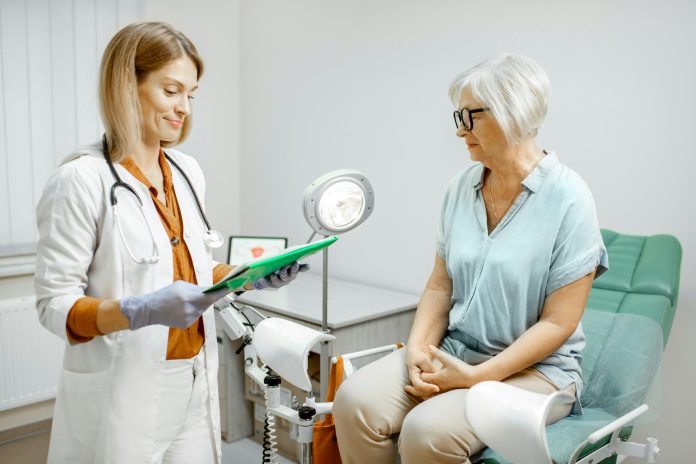Whether you’re in perimenopause or deep into menopause, symptoms can disrupt your life and affect your well-being. Regardless of your progress through menopause, learning about it makes it easier to manage.
Symptoms of Perimenopause
Menopause comes in stages, including premenopause, perimenopause, menopause, and postmenopause. While premenopause is typically asymptomatic, perimenopausal hormone shifts cause the body to react in different ways, including:
- Dry skin
- Migraines
- Breast tenderness
- Joint and muscle aches
- Night sweats
- Sleep disturbances
- Irregular periods
- Mood swings
- Vaginal dryness
- Weight gain
If you’re struggling with menopause symptoms, your doctor can help you find coping and symptom management strategies. Call or click to schedule an appointment.
Signs of Menopause
If you’ve gone a year without a period, you’re in menopause. Late perimenopause and early menopause symptoms are nearly identical, and some may go on while others disappear completely.
Symptoms of Postmenopause
The rest of your life after menopause will be spent in postmenopause. While the most bothersome symptoms may disappear, others persist. A woman in postmenopause may experience hair loss, urinary incontinence, hot flashes, and other problems. Depending on your age at the onset of menopause, some symptoms may be less severe than others.
During this stage, your estrogen level will get (and stay) low, so you won’t experience as many fluctuations as in perimenopause. Other signs, such as migraines, mood swings, and breast tenderness, should also decrease with time. If any of your symptoms are too serious, consult a doctor who can determine if underlying conditions are at play.
Hot Flashes: How Do They Feel?
Hot flashes are waves of body heat that arrive and disappear suddenly. They’re quite common, with up to 75% of menopausal women experiencing them—and some have dozens per day. Hot flashes are different for everyone; while some women have mild symptoms, others break out in a hot, drenching sweat.
Natural Hot Flash Treatment Options
While there’s no natural cure for hot flashes, there are ways to relieve discomfort and cool down, such as:
- Wearing light, easily removable layers of clothing.
- Staying at a healthy weight. Obesity is a significant hot flash risk factor.
- Noting whether spicy foods, caffeine, or alcohol trigger symptoms and avoiding triggers when possible.
- Using meditation and mindfulness techniques to calm yourself.
- Sleeping in a cold room with layered, light bedding.
- Using portable fans.
If your menopause symptoms are so uncomfortable that they’re affecting your quality of life, ask your doctor about hormone therapy.
Managing Menopausal Discomfort: Tips for Women at Every Stage
Depending on your age and the severity of your symptoms, doctors may recommend hormone therapy. If you plan to take nutritional supplements and over-the-counter medicines, discuss them with your physician first. Along with pharmaceutical treatments, certain lifestyle changes and DIY strategies may lessen your discomfort. Try:
- Eating a diet rich in lean protein, whole grains, and fresh vegetables.
- Quitting smoking.
- Incorporating strength training for muscle and bone health.
- Maintaining a regular sleep schedule.
- Using acupuncture and meditation to reduce stress.
- Trying moisturizers to help with vaginal dryness.
It’s always the right time to discuss bothersome and new signs with your doctor. If you think your symptoms are related to menopause or perimenopause, your provider can help. With frank, open discussion and the tips listed above, you will put yourself on the path to menopausal relief.



 Bitcoin
Bitcoin  Ethereum
Ethereum  Tether
Tether  XRP
XRP  Solana
Solana  USDC
USDC  TRON
TRON  Lido Staked Ether
Lido Staked Ether  Cardano
Cardano  Avalanche
Avalanche  Toncoin
Toncoin